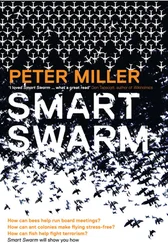I nodded slowly. “Yeah. Sophie told me once you were friends.”
“Grassfire is his baby as much as mine.”
“Huh. You ever heard of two other hackers?” I asked, remembering Dmitri’s tale of how he had gotten Sophie’s technology. “Shadow and Octal?”
“I think Anya used to know them. Black hats. Why?”
“Ortega bought his neural nets through them.”
“Yeah,” he said. “Makes sense Sophie didn’t deal directly.”
I made a noise that might have sounded like a laugh. “Says you. Nothing she did makes sense to me.”
“Did she ever tell you how she knew LoTek?” Jesse leaned forward. “How when she was still a teenager she got recruited into helping with illegal medical research that killed hundreds? She was just a kid. She was doing it for her father. I’m not saying she hasn’t changed. But still. It speaks to a certain callous disregard that I don’t think she’s yet outgrown. I think we’d both agree our Sophie doesn’t necessarily put much value on a single ordinary human life. That’s what scares me.”
I couldn’t argue with that either. “So what are you going to do? When you talked about success before, what did that mean?”
“Freedom,” Jesse said simply. “You see what drones are doing to the world already. Now try to imagine ten years from now, when they’re smaller, and smarter, and there are millions of them. They could be great equalizers, the most powerful weapon for individual liberty ever discovered. But if one person, one organization, can control all of them, which is exactly what Sophie is trying to do by giving away her technology and keeping her override, they’ll become a tool for tyrants that makes Orwell look like a pleasant daydream. Surveillance drones, killer drones, who knows what they might turn into in ten, twenty years’ time. Genocide drones? Pandemic drones? Thoughtcrime drones?” He shook his head seriously. “You understand the stakes here? We’re talking about the future of humanity. No joke. We can’t let that happen. No matter what the cost.”
I raised my eyebrows. Jesse had always had megalomaniacal tendencies but I had never heard him frame himself as the messiah before.
“I mean it, buddy.” He looked grim. “This is some seriously apocalyptic shit.”
Could he actually be right? It was true that by seeding her neural networks around the world Sophie was playing a game with the whole globe as her chessboard and colossal repercussions, win or lose. Might history look back on it as the beginnings of the ultimate struggle for the mankind’s future? Despite Jesse’s rhetoric, that didn’t seem likely – but I had to admit it wasn’t completely out of the question.
I couldn’t imagine why Sophie could have done what she had done, betrayed me, cut secret deals with nations and drug cartels and terror groups. Was Jesse right? Was she a power-mad sociopath? I couldn’t believe that. Maybe she had hidden a whole secret life from me, but I still knew her better than anyone. She had acted like she was carrying an awful burden, not seeking ultimate supremacy.
I shook my head as if that might clear it. I wanted to go for a long hard run until I was gasping and unable to think at all.
“Never mind all that,” I said curtly. “Let’s try and focus on now. The G8. What kind of good do you really think we can do?”
He already had something in mind. I could see it in his face.
“What?” I demanded.
“London,” he said thoughtfully. “Anywhere else, maybe we couldn’t do much, but they’re coming to London. That just might be Ortega’s big mistake.”
“Why? How?”
“Argus.”
The name meant nothing to me. “What’s that?”
He said, “You’ll see.”
The Bahamas were a string of green-and-gold jewels set in the blue Atlantic. We landed and refuelled at a small airport on an island whose name I never learned. It was a nervous stop; I feared extraordinary rendition until we were safely airborne again.
Green and pleasant England was steeped in a thin mist pink with dawn. We touched down not at Heathrow or Gatwick, but on a strip of lawn surrounded by a rickety fence. I had never landed on grass before. The Gulfstream’s door unfolded out into a staircase, and I stepped down onto a new continent, where Anya Azaryeva waited beside a sleek black BMW.
It was barely dawn, but as always she was runway-ready; clinging jeans, a midriff-baring shirt, high-heeled boots and a thigh-length fur coat. As usual I had to look away from her, and her unexpectedly warm hug hello made me shiver a little. She and Jesse exchanged strained looks, awkward and uncomfortable.
“When you said immigration wouldn’t be a problem, I thought you’d get me fake ID,” I said to break the ice.
Anya said, “Not necessary. This is a private airstrip.”
“But they must track flights on radar, right? Don’t they ask -“
“International passengers on private jets must present themselves to immigration within 24 hours. One of my uncle’s associates will do so later today, in your place.”
“Huh. The rich really are different from you and me.”
Anya gave me a strangely wounded look.
“Sorry,” I apologized. “Just a quote.”
“I know,” she said curtly.
We climbed into the BMW. The driver, a man with a scarred bald head, guided us onto a country road and then a motorway. The we-just-broke-up tension between Anya and Jesse was palpable.
“We’re going straight to London?” I asked. “To your uncle?”
Anya nodded.
“Lot of Russians there nowadays, I guess,” I said banally, hoping that speech would be less awkward than the silence.
Jesse muttered, “I call it Moscow on the Thames.”
Anya said tersely, “You can call it whatever you like.”
“Thanks. Don’t mind if I do.”
She turned to me. “London has always welcomed exiles. My uncle is only the most recent in a proud history. De Gaulle in World War II. Karl Marx wrote Das Kapital there. The Jews, the Huguenots, refugees from the Inquisition. Even Julius Caesar was an exile, in a way, when he crossed the Thames at what is now Brentford, just west of London.”
“My, aren’t we the scholar,” Jesse said.
“I received a proper classical education. All you ever studied was money and engineering. You’ve never shown the slightest appreciation for the finer things in life.”
It was a snooty and dismissive accusation but, I had to admit, not inaccurate. Jesse had never been much interested in art or literature or music.
“Other than you, of course,” Jesse said ironically.
“If you ever showed me any refined appreciation you hid it well. As far as I’ve been able to tell, you never even learned any manners.”
He burped loudly.
She made a disgusted noise. “Teaching you was like trying to teach a pig.”
“You know, that’s actually true.” He sounded thoughtful but I could tell he was furious. “Because a pig really doesn’t give a shit which dessert spoon you use for the crème brûlée, and you know what, neither do I. Only crass new-money arrivistes like you care about that crap, because you’re terrified you’ll be mistaken for the even crasser ones who put gold leaf on everything. Here’s a hint, honey. You’re fundamentally no different. The top rung of the class heirarchy isn’t on it, it’s outside of it, and anyone can get there, much as that may stick in your craw.”
“Ah, yes. The rationalization of the gutter.”
“We are all in the gutter, my dear, but some of us -“
“Do you even know who said that first?”
“Guys,” I interrupted. “I hate to ruin your fun, but maybe you could have your domestic dispute later, when there are fewer innocent bystanders around?”
Читать дальше












